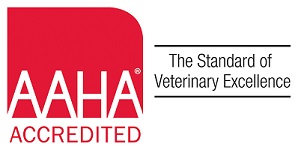New Influenza Strain 
Canine influenza has been in the news lately. There has been an outbreak in Chicago and other areas in the Midwest which as ailed more than 1,000 dogs. According to laboratory results from Cornell University and the University of Wisconsin, the latest outbreak is from the H3N2 strain of virus. It was previously thought to have been from the H3N8 virus that was identified in the U.S. dog population in 2004. The H3N2 strain virus has not been previously detected in North America and suggests a recent introduction of the H3N2 Virus from Asia. There is no evidence to suggest it can be transmitted to humans.
Both strains of Canine Influenza can cause high fever, loss of appetite, coughing, nasal discharge, and lethargy. Symptoms are thought to be more severe in cases cause by H3N2 virus. In the mild form of disease, the most common clinic sign is a cough that persists for 10 to 21 days despite treatment with antibiotics and cough suppressants. Some dogs may remain completely unaffected. H3N2 has caused infection and respiratory illness in cats.
Canine influenza is spread by aerosolized respiratory secretions and contaminated objects such as kennel surfaces (food and water bowls, collars and leashes) and people moving between infected and uninfected dogs. The virus incubates for 2-4 days from exposure until clinical symptoms appear. The highest amount of virus shedding occurs during the incubation stage, but decreases during the first 4 days of illness. Some dogs can remain infectious for 7-10 days after symptoms appear.
Confirming a diagnosis of canine influenza has previously been done with PCR testing, serology titers, and ELISA Testing Influenza types A and B for humans. In order to detect the new strain of H3N2 a broadly targeted influenza A Rt-PCR can be done. The canine-specific influenza A H3N8 Rt-PCR commonly used in most laboratories will not detect H3N2. Serology is not available as the H3N2 virus is different enough from H3N8 that antibodies may not cross react. Development is underway and will be available soon for serology testing.
We do not know if the current vaccine will provide any protection from this new virus. The Canine Influenza vaccine does protect against H3N8, which is circulating in some areas. It is still recommended to vaccinate for Canine Influenza for dogs who are at risk. Prevention is still the key. In areas where the virus is circulating avoid places where dogs congregate, such as dog parks and grooming salons.
Owners of symptomatic dogs and cats should consult their veterinarians about testing and treatment.



